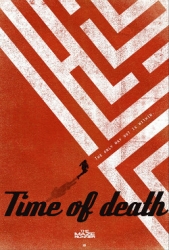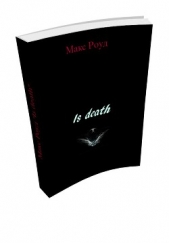A Death in Vienna

A Death in Vienna читать книгу онлайн
The sins of the past reverberate into the present, in an extraordinary novel by the new master of international suspense.
It was an ordinary-looking photograph. Just the portrait of a man. But the very sight of it chilled Allon to the bone.
Art restorer and sometime spy Gabriel Allon is sent to Vienna to authenticate a painting, but the real object of his search becomes something else entirely: to find out the truth about the photograph that has turned his world upside down. It is the face of the unnamed man who brutalized his mother in the last days of World War II, during the Death March from Auschwitz. But is it really the same one? If so, who is he? How did he escape punishment? Where is he now?
Fueled by an intensity he has not felt in years, Allon cautiously begins to investigate; but with each layer that is stripped away, the greater the evil that is revealed, a web stretching across sixty years and thousands of lives. Soon, the quest for one monster becomes the quest for many. And the monsters are stirring…
Rich with sharply etched characters and prose, and a plot of astonishing intricacy, this is an uncommonly intelligent thriller by one of our very best writers.
Внимание! Книга может содержать контент только для совершеннолетних. Для несовершеннолетних чтение данного контента СТРОГО ЗАПРЕЩЕНО! Если в книге присутствует наличие пропаганды ЛГБТ и другого, запрещенного контента - просьба написать на почту [email protected] для удаления материала
“I told them those seals would never hold,” Gabriel said. “It was a waste of money.”
Chiara looked up sharply. Her hair was dark and curly and shimmering with highlights of auburn and chestnut. Barely constrained by a clasp at the nape of her neck, it spilled riotously about her shoulders. Her eyes were caramel and flecked with gold. They tended to change color with her mood.
“Don’t just stand there like an idiot. Get down here and help me.”
“Surely you don’t expect a man of my talent-”
The soaking white towel, thrown with surprising force and accuracy, struck him in the center of the chest. Gabriel wrung it out into a bucket and knelt next to her. “There’s been a bombing in Vienna,” Chiara whispered, her lips pressed to Gabriel’s neck. “He’s here. He wants to see you.”
THE FLOODWATERS LAPPED against the street entrance of the canal house. When Gabriel opened the door, water rippled across the marble hall. He surveyed the damage, then wearily followed Chiara up the stairs. The living room was in heavy shadow. An old man stood in the rain-spattered window overlooking the canal, as motionless as a figure in the Bellini. He wore a dark business suit and silver necktie. His bald head was shaped like a bullet; his face, deeply tanned and full of cracks and fissures, seemed to be fashioned of desert rock. Gabriel went to his side. The old man did not acknowledge him. Instead, he contemplated the rising waters of the canal, his face set in a fatalistic frown, as though he were witnessing the onset of the Great Flood come to destroy the wickedness of man. Gabriel knew that Ari Shamron was about to inform him of death. Death had joined them in the beginning, and death remained the foundation of their bond.
3 VENICE
IN THE CORRIDORS and conference rooms of the Israeli intelligence services, Ari Shamron was a legend. Indeed, he was the service made flesh. He had penetrated the courts of kings, stolen the secrets of tyrants, and killed the enemies of Israel, sometimes with his bare hands. His crowning achievement had come on a rainy night in May 1960, in a squalid suburb north of Buenos Aires, when he leapt from the back of a car and seized Adolf Eichmann.
In September 1972, Prime Minister Golda Meir had ordered him to hunt down and assassinate the Palestinian terrorists who had kidnapped and murdered eleven Israelis at the Munich Olympic Games. Gabriel, then a promising student at the Bezalel Academy of Art in Jerusalem, reluctantly joined Shamron’s venture, fittingly code-named Wrath of God. In the Hebrew-based lexicon of the operation, Gabriel was an Aleph. Armed only with a.22-caliber Beretta, he had quietly killed six men.
Shamron’s career had not been an unbroken ascent to greater glory. There had been deep valleys along the way and mistaken journeys into operational wasteland. He developed a reputation as a man who shot first and worried about the consequences later. His erratic temperament was one of his greatest assets. It struck fear into friends and enemies alike. For some politicians, Shamron’s volatility was too much to bear. Rabin often avoided his calls, fearing the news he might hear. Peres thought him a primitive and banished him into the Judean wilderness of retirement. Barak, when the Office was foundering, had rehabilitated Shamron and brought him back to right the ship.
Officially he was retired now, and his beloved Office was in the hands of a thoroughly modern and conniving technocrat called Lev. But among many quarters, Shamron would always be the Memuneh, the one in charge. The current prime minister was an old friend and fellow traveler. He’d given Shamron a vague title and just enough authority to make a general nuisance of himself. There were some at King Saul Boulevard who swore that Lev was secretly praying for Shamron’s rapid demise-and that Shamron, stubborn and steel-willed Shamron, was keeping himself alive merely to torment him.
Now, standing before the window, Shamron calmly told Gabriel what he knew about the events in Vienna. A bomb had exploded the previous evening inside Wartime Claims and Inquiries. Eli Lavon was in a deep coma in the intensive care ward of the Vienna General Hospital, the odds of survival one in two at best. His two research assistants, Reveka Gazit and Sarah Greenberg, had been killed in the blast. An offshoot of bin Laden’s Al Qaeda organization, a shadowy group called the Islamic Fighting Cells, had claimed responsibility. Shamron spoke to Gabriel in his murderously accented English. Hebrew was not permitted in the Venice canal house.
Chiara brought coffee and rugelach to the sitting room and settled herself between Gabriel and Shamron. Of the three, only Chiara was currently under Office discipline. Known as abat leveyha, her work involved posing as the lover or spouse of a case officer in the field. Like all Office personnel, she was trained in the art of physical combat and in the use of weaponry. The fact that she had scored higher than the great Gabriel Allon on her final firing range exam was a source of some tension in their household. Her undercover assignments often required a certain intimacy with her partner, such as showing affection in restaurants and nightclubs and sharing the same bed in hotel rooms or safe flats. Romantic relationships between case officers and escort agents were officially forbidden, but Gabriel knew that the close living quarters and natural stress of the field often drew them together. Indeed, he had once had an affair with hisbat leveyha while in Tunis. She’d been a beautiful Marseilles Jew named Jacqueline Delacroix, and the affair had nearly destroyed his marriage. Gabriel, when Chiara was away, often pictured her in the bed of another man. Though not prone to jealousy, he secretly looked forward to the day King Saul Boulevard decided she was too overexposed for fieldwork.
“Whoexactly are the Islamic Fighting Cells?” he asked.
Shamron made a face. “They’re small-time operators mainly, active in France and a couple of other European countries. They enjoy setting fire to synagogues, desecrating Jewish cemeteries, and beating up Jewish children on the streets of Paris.”
“Was there anything useful in the claim of responsibility?”
Shamron shook his head. “Just the usual drivel about the plight of the Palestinians and the destruction of the Zionist entity. It warns of continuous attacks against Jewish targets in Europe until Palestine is liberated.”
“Lavon’s office was a fortress. How did a group that usually uses Molotov cocktails and spray-paint cans manage to get a bomb inside Wartime Claims and Inquiries?”
Shamron accepted a cup from Chiara. “The Austrian Staatspolizei aren’t sure yet, but they believe it may have been concealed in a computer delivered to the office earlier that day.”
“Do we believe the Islamic Fighting Cells have the ability to conceal a bomb in a computer and smuggle it into a secure building in Vienna?”
Shamron stirred sugar violently into his coffee and slowly shook his head.
“So who did it?”
“Obviously, I’d like to know the answer to that question.”
Shamron removed his coat and rolled up his shirtsleeves. The message was unmistakable. Gabriel looked away from Shamron’s hooded gaze and thought of the last time the old man had sent him to Vienna. It was January 1991. The Office had learned that an Iraqi intelligence agent operating from the city was planning to direct a string of terrorist attacks against Israeli targets to coincide with the first Persian Gulf War. Shamron had ordered Gabriel to monitor the Iraqi and, if necessary, take preemptive action. Unwilling to endure another long separation from his family, Gabriel had brought his wife, Leah, and young son, Dani, along with him. Though he didn’t realize it, he had walked into a trap laid by a Palestinian terrorist named Tariq al-Hourani.























